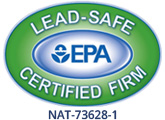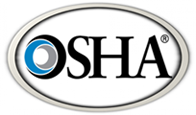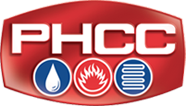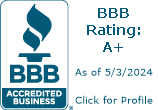Common Restaurant Plumbing Issues
 The typical plumbing issue experienced in your home is maximized in a restaurant due to the nature of the business. When serving food, cleaning dishes and having customers use the facilities every day, it’s important to have a relationship with a trusted plumber. Additionally, restaurant owners should anticipate the following concerns.
The typical plumbing issue experienced in your home is maximized in a restaurant due to the nature of the business. When serving food, cleaning dishes and having customers use the facilities every day, it’s important to have a relationship with a trusted plumber. Additionally, restaurant owners should anticipate the following concerns.
Clogged Drains
Restaurant kitchens see a large volume of food waste. Ideally, scraps should be thrown away before dishes are placed in a large industrial sink but sometimes, this step is skipped. As such, food scraps not caught in a strainer end up in the drain.
Along with fats and oils, this combination creates a clog that can slow the flow of water over time, which could halt kitchen operations.
Clogged plumbing can have a vast effect on restaurant operations and the community as a whole. For one, fats can accumulate in a nearby sewer, contributing to a fatberg. Blockages in your plumbing can cause water to pool in the sink, so your workers cannot clean at the pace they need to. During inspections, your business risks getting written up for a health hazard due to stagnant water.
Although drain cleaners might seem like a quick fix for clogs, the fumes can stay in the air and pose another hazard to workers and customers. A commercial plumber can assist by snaking the drain and jetting debris into the sewer system.
Clogged Toilets
Outside of your kitchen, a restaurant bathroom sees consistent usage throughout the day. Clogs can result from flushing paper towels and sanitary napkins down the toilet or a general lack of regard for public facilities. You also risk having sewage back up in the toilet.
No matter the source, backups can quickly turn into a sanitation and safety issue. Considering the contributing factors, post signs that explicitly state only toilet paper can be flushed and all other products must be placed in the trash or disposal bins in stalls. Further consider limiting paper towel use by installing a hand dryer.
Along with making these changes, schedule your employees to check and clean the customer bathroom once an hour. Address potential clogs and mark any stalls that are out of service.
Grease Traps
Cooking oil and fat disposal remains an issue for restaurants. Dumping these substances down the drain will cause them to harden and create a clog, which also affects the community sewer. Grease traps are an alternative but they can also overflow.
When grease traps lose effectiveness, any fats and oils can pass into the sewer line. As one solution, develop a policy to regularly empty the grease trap – ideally, when it’s about one-quarter full.
Dishwasher Issues
A dishwasher should not be an alternative to hand-washing dishes and cutlery. These appliances come with the same issues that can contribute to clogs and other plumbing problems in your kitchen.
Dishwashers are run multiple times per day in restaurants. Should one become clogged or break down, this can slow your cleaning process, as all dishes need to be washed by hand until repairs are made.
Leaky Faucet
Of all plumbing problems a restaurant could experience, a leaking faucet seems low on the list. Yet should it persist for at least a month, you will notice a sharp change in your water bill that can place a strain on your budget.
Similar to residential plumbing issues, a leaky faucet might mean parts need tightening or the water pressure is too weak. To avoid paying higher costs, have your plumber examine and address the issue as soon as possible.
Hot Water Heater
No hot water or inconsistent temperatures can affect your cooking and cleaning procedures. It may take longer to boil water, causing customers to wait for their food to be prepared. Meanwhile, your dishwashing process becomes less efficient. Dishwasher loads might have bits of food crusted on the surface, causing your workers to spend longer scrubbing.
Along with these factors, hot water heaters also experience leaks. Not only does this affect the amount of water you have to use, but any water pooling and traveling within your facility can be a slip hazard.
Rather than attempting to resolve the issue yourself, develop a relationship with the commercial plumbers at MJ Fahy & Sons. Should your Connecticut restaurant experience a plumbing issue, contact our team to schedule service.




